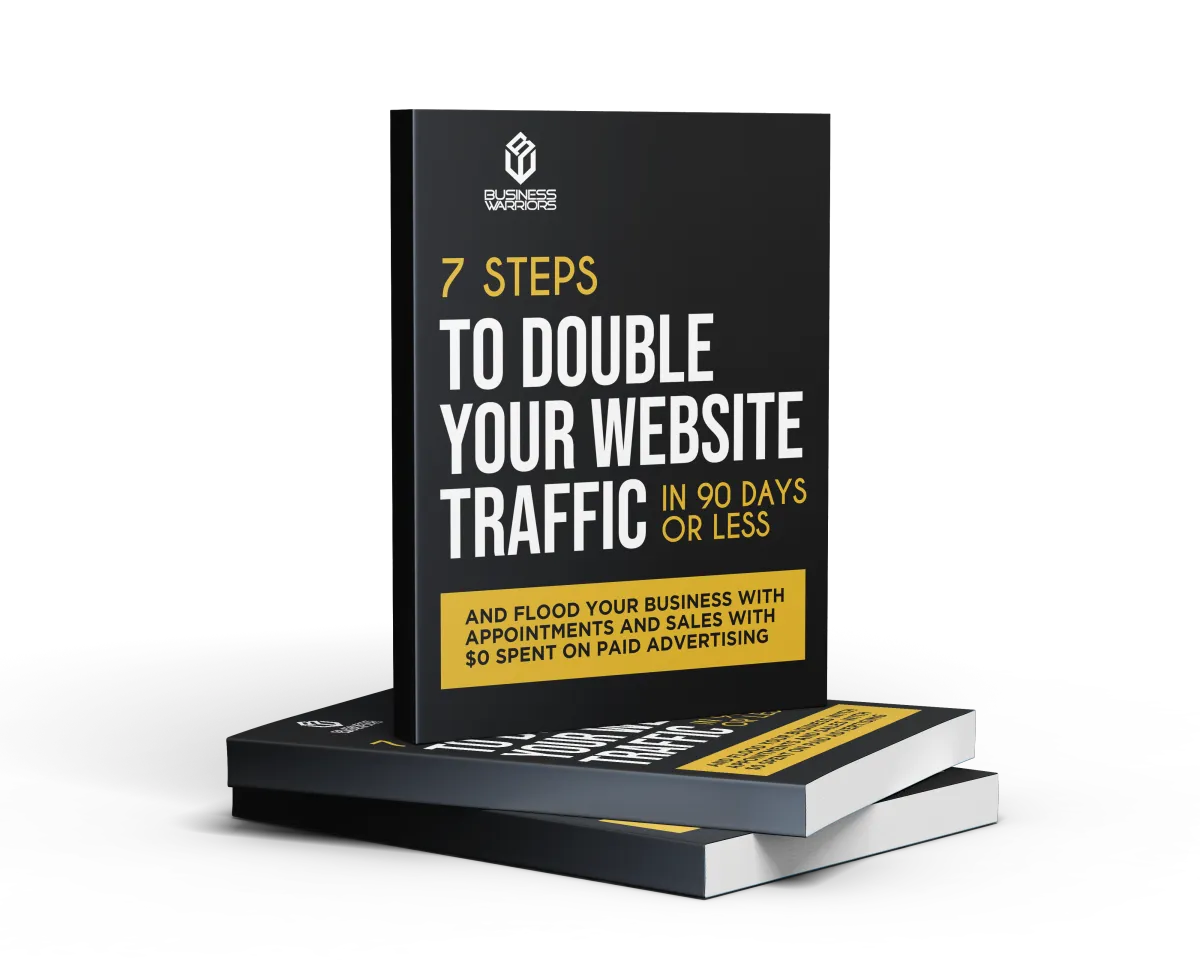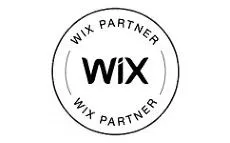Blog

Boost Your Sales: 5 Easy SEO Wins for Your Shopify Store
As an e-commerce business owner, driving traffic to your Shopify store is a top priority. With millions of online stores competing for attention, the ecommerce and organic search landscape is highly competitive, making it essential to stand out. While there are numerous marketing strategies to explore, search engine optimisation (SEO) is a powerful tool that can significantly boost your online visibility and sales. By optimising your Shopify store for search engines, you increase the chances of potential customers discovering your products when searching for relevant terms.
Implementing effective Shopify SEO practices can seem daunting, but it doesn’t have to be complicated. In this article, we’ll explore five easy SEO wins that can help you improve your store’s search engine rankings, drive more qualified traffic, and ultimately increase your sales.
Introduction: Why SEO Matters for Your Shopify Store
Search engine optimization (SEO) is a game-changer for any Shopify store looking to stand out in the crowded world of ecommerce. With millions of online stores competing for attention, simply having great products isn’t enough—you need to ensure your store is easily discoverable by your target audiences. By leveraging SEO, you can boost your store’s visibility in search engine results, attract more traffic, and connect with new audiences who are actively searching for products like yours.
Effective SEO strategies help maximize your store’s success by driving qualified traffic that is more likely to convert into paying customers. Whether you’re just starting out or looking to scale your business, optimizing your Shopify store for search engines is essential for reaching your full ecommerce potential. With the right optimization techniques, you can expand your reach, increase your sales, and build a loyal customer base.
What is SEO and How It Drives Sales To Targeted Keywords
SEO, or search engine optimization, is the process of enhancing your website so it ranks higher on search engine results pages (SERPs) for relevant keywords. For Shopify store owners, this means optimizing your site’s content, structure, and technical aspects to ensure search engines like Google can easily find and understand your pages.
By targeting the right keywords—those your potential customers are actually searching for—you can attract organic traffic to your store without relying solely on paid ads. Optimizing your product pages, improving site speed, and ensuring your site is technically sound all contribute to better rankings. The higher your store appears in search results, the more likely shoppers are to visit your site, explore your products, and make a purchase.
SEO is a key driver of sales because it puts your store in front of customers at the exact moment they’re searching for what you offer. By investing in SEO, you’re not just increasing traffic—you’re attracting the right kind of traffic, which leads to more conversions and long-term business growth.
Setting Up Your Shopify Store for SEO Success
Laying the groundwork for search engine optimization is essential if you want your Shopify store to thrive in search engines like Google. A well-optimized store not only attracts more customers but also sets the stage for long-term SEO success. By making smart choices from the very beginning—like selecting the right theme, configuring key settings, and organizing your navigation—you’ll give your store the best possible chance to rank higher and reach new audiences.
Choosing an SEO-Friendly Theme
The theme you choose for your Shopify store plays a key role in how search engines interpret and rank your pages. An SEO-friendly theme features clean, efficient code that loads quickly and adapts seamlessly to mobile devices, both of which are crucial for attracting organic traffic. Look for themes that allow you to easily customize metadata, such as page titles, descriptions, and URLs, so you can optimize every aspect of your store for search engine visibility. This strong foundation helps your store’s pages get discovered by more shoppers, driving more traffic and boosting your SEO efforts from day one.
Essential Store Settings for Search Engines
Configuring your Shopify store’s settings with SEO in mind is vital for achieving higher rankings in Google search results. Start by setting up a custom domain that reflects your brand and is easy for customers to remember. Enable SSL to secure your site—Google’s algorithms favor secure sites, which can positively impact your ranking. Make sure your robots.txt and sitemap.xml files are properly configured to guide search engine crawlers through your site. Integrate tools like Google Analytics and Google Search Console to monitor your site’s performance, track traffic, and gain valuable insights into how your SEO strategies are working. These steps ensure your store is set up for ongoing optimization and success.
Structuring Your Store Navigation
A clear, logical navigation structure is essential for both your customers and search engines. Organize your store into intuitive categories and subcategories, using relevant keywords in your page titles and URLs to help search engines understand your site’s content. Make sure every important page is accessible through internal linking, which not only improves the user experience but also signals to search engines which pages are most valuable. A well-structured site enhances your store’s credibility, makes it easier for customers to find what they need, and contributes to higher rankings in search results.
1. Keyword Research: The Foundation of Google Searches and SEO To Bring More Traffic
Keyword research is the backbone of any successful SEO strategy, including for Shopify stores. It is essential to develop a comprehensive keyword strategy to guide your SEO efforts and ensure you are targeting the right terms. Before optimising your website or creating content, you need to identify the keywords and phrases that your target audience is using to search for products or services similar to yours.
Analytics and keyword research tools help determine which keywords are most valuable for your Shopify SEO strategy.
Here are some tips for effective keyword research:
Understand Your Customers' Search Intent
Put yourself in your customers' shoes and brainstorm the terms they might use when searching for your products. Consider their pain points, interests, and the language they commonly use.
Use Keyword Research Tools
Leverage keyword research tools like Google Keyword Planner, Ahrefs, SEMrush, or Ubersuggest to find relevant keywords and their search volumes, competition levels, and related terms. There are also free SEO tools available for keyword research, which can help store owners optimize their sites without additional cost.
Analyse Your Competitors
Study your competitors' websites and identify the keywords they're targeting. This can provide insights into potential opportunities or gaps in your own keyword strategy.
2. On-Page Optimisation: Making Your Content Search Engine-Friendly
Once you’ve identified your target keywords, it’s time to optimise your Shopify store’s content to make it more search engine-friendly. This process is known as on-page optimisation, and it involves optimising various elements of your website’s pages. Collaborating with a skilled developer can help ensure that technical on-page SEO elements are properly implemented for optimal results. Optimising metadata, such as page titles and descriptions, is essential for making your web content more discoverable. Be sure to optimise both category and product pages to achieve better SEO results.
Optimise Page Titles and Meta Descriptions
Page titles and meta descriptions are among the first things users see in search results, so crafting compelling and keyword-optimised titles and descriptions is crucial. They should accurately represent the page's content while enticing users to click through.
Use Relevant Keywords in Your Content
Naturally incorporate your target keywords into your product descriptions, blog posts, and other content. However, be cautious of keyword stuffing, as search engines penalise this practice.
Optimise Images with Alt Text and File Names
Search engines cannot "see" images, but they can read the associated alt text and file names. Use descriptive, keyword-rich alt text and file names to help search engines understand the context of your images.
3. Optimising Product Pages for Maximum Visibility
Optimizing your product pages is one of the most effective ways to improve your Shopify store’s SEO and attract more customers. Many of our clients have seen significant improvements in search rankings and increased sales after optimizing their product pages, demonstrating proven results.
Well-optimized product pages not only help search engines understand your offerings but also provide shoppers with the information they need to make confident purchasing decisions. By focusing on product titles, descriptions, structured data, and customer reviews, you can ensure your pages stand out in search results and drive more sales.
Craft Compelling Product Titles and Descriptions
Your product titles and descriptions are the first things both search engines and customers notice. To optimize your product pages, make sure each title includes your target keywords and clearly describes the product. Avoid generic titles—be specific and use language that matches what your customers are searching for.
In your product descriptions, go beyond the basics. Highlight key features, benefits, and specifications, and naturally incorporate relevant keywords throughout the text. This not only helps your pages rank higher in search results but also provides valuable information that can persuade shoppers to buy. Use tools like Google Analytics to monitor which product pages are attracting the most traffic and adjust your titles and descriptions to maximize their effectiveness.
Utilise Structured Data for Rich Snippets
Structured data is a powerful way to help search engines better understand your product pages and display rich snippets—such as star ratings, prices, and availability—directly in search results. By adding structured data markup to your product pages, you make it easier for search engines to index your content and present it in a more engaging way to potential customers.
Rich snippets can significantly increase your click-through rates by making your listings more eye-catching and informative. Tools like Google’s Structured Data Markup Helper can guide you through the process of adding the right data to your pages, ensuring your products get the visibility they deserve.
Encourage Customer Reviews for Social Proof
Customer reviews are a powerful form of social proof that can boost your store’s credibility and improve your search engine rankings. Search engines value fresh, user-generated content, and reviews often contain relevant keywords that can help your product pages rank higher.
Encourage your customers to leave reviews by making the process simple and rewarding. Display these reviews prominently on your product pages to build trust with new shoppers and increase the likelihood of conversions. Additionally, positive reviews can enhance your link building efforts, as reputable sites are more likely to reference and link to products with strong customer feedback. Use tools like Shopify’s Product Review app to collect and showcase reviews, and watch your store’s credibility and rankings grow.
Google Shopping Feed Optimization
For ecommerce businesses looking to maximize their reach, optimizing the Google Shopping feed is a powerful way to drive more traffic to your Shopify store. A well-optimized feed ensures your products appear in front of shoppers who are actively searching for what you sell, increasing your visibility and boosting your chances of making a sale.
Setting Up and Submitting Your Feed
To get started with Google Shopping, create a Google Merchant Center account and connect it to your Shopify store. Your Google Shopping feed should include detailed, accurate information for each product—such as price, description, and high-quality images—to meet Google’s requirements. Make it a habit to regularly update your feed to reflect changes in inventory, pricing, and product details, ensuring your listings remain current and competitive. Once your feed is ready, submit it through Google Merchant Center and monitor its performance to catch and resolve any issues that could prevent your products from appearing in Google Shopping results. By optimizing your Google Shopping feed, you’ll increase your store’s visibility, attract more targeted traffic, and generate more sales for your ecommerce business.
Easy SEO: Leverage Shopify's Built-In Features
Shopify offers several built-in features, providing a comprehensive suite of tools for store management, that can make Shopify SEO easier for store owners. For example, the platform automatically generates search engine-friendly URLs for your products and pages, and it allows you to edit meta descriptions and alt text directly from the admin panel.
Additionally, Shopify's integrations with other marketing tools, such as email marketing and social commerce platforms, can further enhance your SEO efforts.
3. Technical SEO: Ensuring a Search Engine Algorithm Friendly Website
Technical SEO focuses on optimising the non-content elements of your website to ensure it’s crawler-friendly and provides a positive user experience. Staying updated with changes in search engine algorithms is crucial, as algorithms frequently evolve and can impact your rankings. Poor technical SEO can negatively impact your search engine rankings, even if your content is well-optimised. Monitoring your site’s performance is essential for identifying and fixing technical SEO issues, ensuring your website remains competitive. Site's performance includes both technical aspects, such as site speed and crawlability, and user experience factors like mobile responsiveness and ease of navigation.
Improve Site Speed
Site speed is a crucial factor in both user experience and search engine rankings. Optimise your images, leverage browser caching, and consider using a content delivery network (CDN) to improve your website's load times.
Enable SSL/HTTPS
Search engines prioritise websites with secure connections (HTTPS). Enabling SSL on your Shopify store not only enhances security but also contributes to better search engine rankings.
Create a Sitemap and Submit it to Search Engines
A sitemap is a file that lists all the pages on your website, making it easier for search engines to crawl and index your content. Shopify automatically generates a sitemap for your store, but you should manually submit it to Google Search Console and Bing Webmaster Tools.
4. Content Marketing: Driving Traffic and Building Authority
Effective SEO strategies for Shopify stores often hinge on incorporating content marketing seamlessly. There are various methods of content marketing that can drive traffic and build authority. By consistently producing and sharing high-quality, relevant content, you can draw in more organic traffic, solidify your brand’s authority within your industry, and enhance your search engine rankings over time. Leveraging available resources, such as staff and tools, can help maximize your content marketing efforts. Developing a content marketing campaign allows you to systematically grow your store's online presence.
Blogging for SEO
A well-maintained blog can significantly boost your Shopify store's SEO efforts. Regularly publishing informative and engaging blog posts related to your products or industry allows you to incorporate relevant keywords, attract backlinks, and provide value to your audience.
Create Informational and Educational Content
In addition to blogging, consider creating other types of content such as product guides, tutorials, infographics, or videos. This diverse content not only caters to different learning styles but also provides more opportunities to target relevant keywords and topics.
Leverage User-Generated Content
Encourage your customers to leave reviews, testimonials, and product ratings on your Shopify store. User-generated content can significantly enhance your store's reputation and build trust with potential customers. It can also enhance your credibility, provide fresh content for search engines, and potentially include relevant keywords or phrases used by your audience.
5. Link Building: Earning Authority and Credibility
Link building is the practice of earning high-quality backlinks from reputable and relevant websites. Internal linking is also an essential part of a comprehensive link building strategy, helping organize your site and boost important pages. Effective link building can generate valuable backlinks and more traffic to your Shopify store. Strategic link building improves your store's placement in search engine results, making your products more discoverable. Successful link building efforts can lead to higher rankings for your Shopify store. Search engines consider backlinks as “votes of confidence” and use them as a ranking signal, making link building a crucial aspect of Shopify SEO.
Guest Blogging
Reach out to industry blogs or publications and offer to contribute high-quality, informative guest posts. This not only provides an opportunity to earn backlinks but also helps establish your brand as an authority in your niche.
Broken Link Building
Identify broken links on authoritative websites within your industry and offer to replace them with relevant content from your Shopify store or blog. This can be a mutually beneficial arrangement, as you gain a valuable backlink, and the other website fixes a broken link.
Influencer Outreach
Collaborate with influencers or thought leaders in your industry to create co-branded content, product reviews, or sponsored posts. This can help you tap into their established audience and potentially earn high-quality backlinks.
By implementing these five easy SEO wins, you'll be well on your way to boosting your Shopify store's search engine visibility, driving more qualified traffic, and ultimately increasing your sales. Remember, SEO is an ongoing process, and staying up-to-date with the latest trends and best practices is essential for long-term success. To ensure your Shopify store's SEO strategies are effective and up-to-date, we recommend consulting witg Business Warriors Digital Marketing Agency, a leading digital marketing agency specialising in ecommerce SEO
WHAT WOULD YOUR RETURN ON INVESTMENT LOOK LIKE USING OUR DIGITAL MARKETING VORTEX METHOD TO YOUR BUSINESS?
GET THE DIGITAL MARKETING AGENCY SECRETS: 7 STEPS TO DOUBLE YOUR WEBSITE TRAFFIC IN 90 DAYS OR LESS








